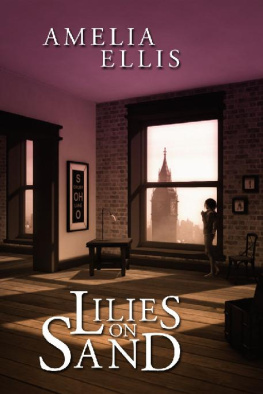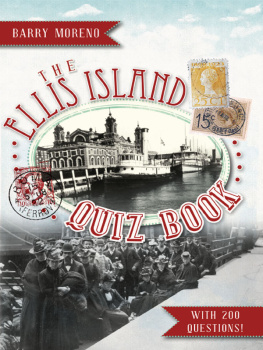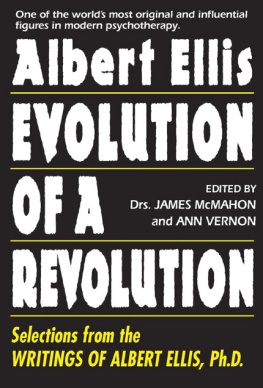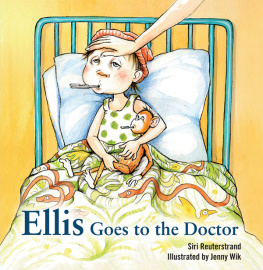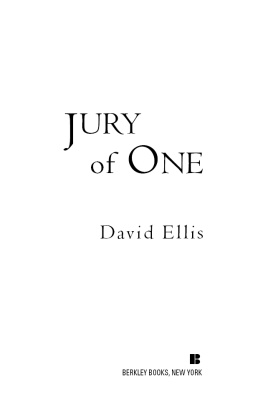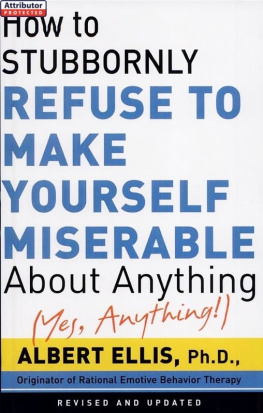Amelia Ellis [Ellis - Lilies on Sand
Here you can read online Amelia Ellis [Ellis - Lilies on Sand full text of the book (entire story) in english for free. Download pdf and epub, get meaning, cover and reviews about this ebook. year: 2011, publisher: NPI, genre: Detective and thriller. Description of the work, (preface) as well as reviews are available. Best literature library LitArk.com created for fans of good reading and offers a wide selection of genres:
Romance novel
Science fiction
Adventure
Detective
Science
History
Home and family
Prose
Art
Politics
Computer
Non-fiction
Religion
Business
Children
Humor
Choose a favorite category and find really read worthwhile books. Enjoy immersion in the world of imagination, feel the emotions of the characters or learn something new for yourself, make an fascinating discovery.
- Book:Lilies on Sand
- Author:
- Publisher:NPI
- Genre:
- Year:2011
- Rating:4 / 5
- Favourites:Add to favourites
- Your mark:
- 80
- 1
- 2
- 3
- 4
- 5
Lilies on Sand: summary, description and annotation
We offer to read an annotation, description, summary or preface (depends on what the author of the book "Lilies on Sand" wrote himself). If you haven't found the necessary information about the book — write in the comments, we will try to find it.
Amelia Ellis [Ellis: author's other books
Who wrote Lilies on Sand? Find out the surname, the name of the author of the book and a list of all author's works by series.
Lilies on Sand — read online for free the complete book (whole text) full work
Below is the text of the book, divided by pages. System saving the place of the last page read, allows you to conveniently read the book "Lilies on Sand" online for free, without having to search again every time where you left off. Put a bookmark, and you can go to the page where you finished reading at any time.
Font size:
Interval:
Bookmark:


It was a Friday morning in mid August; Big Ben had just struck eleven. There had been no rain in London for over two weeks, and an unusual sultry heat bore down on the city. Afternoon temperatures climbed over thirty degrees and, as assiduously as most Londoners grumble about bad weather, they were now complaining about the heat. The high temperatures didnt bother me. My office window stood open and a light breeze wafted into the room. At this time of day, the heat had yet to reach its peak and there was still a hint of fresher night air. My feet on the windowsill, I looked out over the Thames, sipping a glass of iced tea.
I had concluded my last case ten days ago; since then I had been more or less unemployed. One of the quirks of being a private detective is that its hard to go looking for work yourself. You put an ad in the Yellow Pages and wait for the phone to ring, or a knock at the door. Sitting around now and then, musing on anything and everything, is part and parcel of the life. A few days of it can result in astonishing insights; after a few weeks, you come to more idiosyncratic conclusions. By the time all the files have been updated and put away, properly ordered, in the right drawers, any squeaking doors have been oiled and dripping taps repaired, and every window closes perfectly, a strange loneliness can creep in, even in the middle of this huge city. You sit in your office, watching the tourists on Westminster Embankment, having already read the paper from front to back, and drink another glass of iced tea, while the telephone remains obstinately silent.
The telephone rang.
I removed my feet from the windowsill and turned to face my desk, reaching for the receiver:
Nea Fox, how can I help you?
My name is Marlee Fynn; I need your help, said a young womans voice. I think Im being followed!
Who by?
By two men, replied Miss Fynn.
Where are you now?
In a phone box on Piccadilly Circus.
Then I suggest you come to my office, I said. Its right by the Thames, no more than ten minutes from Piccadilly Circus.
OK, thanks a lot, she said. Shall I try to shake them off?
No, please dont do that, I replied. Id like to get a look at your followers myself.
Right.
After describing the route to my office and getting a rough description of Marlee Fynn and the men following her, I hung up, packed a few things in my rucksack and made my way downstairs. I left my office door unlocked so my potential new client wouldnt have to wait in the corridor when she arrived.
On the stairs of the old building, I shivered. Even the extraordinary heat of the last few weeks hadnt quite been able to penetrate these thick stone walls. As I stepped outside, I put on my sunglasses, enjoying the warmth for a moment, before crossing the road and hurrying towards Westminster Bridge. I took the route Miss Fynn would come, only in the opposite direction. About two hundred yards from my office, I sat on a bench between a statue of Admiral Jellicoe and a large plane tree. I opened the rucksack and unpacked my disguise: a black New York Yankees baseball cap, a bottle of water, a map of London and my camera. After half unfolding the map across the bench and weighing it down with the water bottle, I took the camera, leant against a low wall near the pavement and pretended to be interested in the statue of the Admiral.
Barely five minutes later, I recognised Marlee Fynn on the other side of the road. She was in her early twenties and had short, dark brown hair which made her look almost boyish. She was hurrying towards my office and, as she drew roughly level with me, she glanced over the road in my direction. At first I thought I could see fear in her eyes, but then a definite smile crept across her face, as if shed recognised me. Although Id asked for a rough description of her followers on the telephone, I hadnt mentioned that I was planning to come and meet her. Was it that easy to see through my disguise? I didnt think so, and I was also pretty sure that wed never met. Such contradictions automatically set off an alarm in my mind not loud screaming sirens, but a little red light flashing somewhere.
Miss Fynn carried on walking towards my office. I watched the handful of pedestrians heading in the same direction, also keeping an eye out for slow-moving cars, but noticed nothing unusual. She had mentioned two men between thirty and forty, one small and thickset, the other taller and thinner. The description fitted nobody out and about in the street. All the same, I took a few photos. Sometimes on closer inspection later on, you spot something you missed the first time around. After five minutes, I packed up my things and made my way back to my office.
Miss Fynn was waiting on the third floor, outside my office door. She had obviously either not noticed that it was unlocked or thought it inappropriate to just walk in. When she saw me, she came towards me saying: Hi, Im Marlee Fynn; I saw you just now on the street.
I noticed that, I said, opening the door and stepping through. How did you recognise me?
I dont know, she replied. When you were down there taking photos of the statue and watching me at the same time, you looked kind of nice, but smart at the same time. Thats how I imagined you. Like a guardian angel, secretly watching out for me.
Thanks for the compliment, I said in embarrassment. Can I get you anything? Tea? Orange juice?
Do you have a coke? she asked, sitting down. And please call me Marlee. Miss Fynn makes me feel about thirty.
Ouch. I must be getting old.
OK, Marlee, then Im Nea, I said. Now weve got that cleared up, we can focus on your problem. Ill just fetch the drinks Ill be right back.
I went into the lobby and fetched a can of coke and a bottle of orange juice from the little fridge near the door. When I returned to my office, Marlee was looking at the two photos on my desk. Entirely unselfconsciously, she stared at the people who were strangers to her, but meant so much to me. After having a look at the photos, she turned her attention to a colourful toy pistol that David once gave me. Id barely begun to move again when Marlee whirled around and, before I could say a word, a pink foam ball bounced off my forehead.
Gotcha! cried Marlee triumphantly. I hope youve got a real piece too!
She definitely knew how to make me feel old. I handed her the can of coke, sat down behind my desk and said: OK, can we get to your problem now?
Sure, replied Marlee, putting the toy gun on the desk and opening her drink. Did you see the guys?
No, I didnt spot anyone, I said. I dont think anyone followed you here but Ill check the photos I took in the street later on.
Weird I could have sworn those guys were shadowing me since I landed at Heathrow. Yesterday they almost followed me into the ladies restroom at the National Gallery.
Why dont you tell me the whole thing from the beginning? I suggested.
An hour later, Marlee had told me everything not just about her alleged pursuers, but half her life-story. She was twenty-one, American and had only been in London for three days. From her only relative, her paternal grandmother, she had inherited a house in London. The old lady had died three months earlier, at the age of ninety-one, which according to Marlee had totally messed her up. They had obviously been very close. Marlee had graduated from college in the spring and was now planning to study art history in London. It was all arranged shed given up her apartment in LA and in three weeks shed start lectures at London Metropolitan University. Until then, she had time to make herself at home both in her grandmothers house and in London. She was reasonably comfortable financially. She had inherited a bit of money from her father, whod died two years ago of heart failure, and her grandmother had also left her a little money, as well as the house, so that, at least until the end of her studies, shed have no money worries, so long as she was reasonably sensible.
Font size:
Interval:
Bookmark:
Similar books «Lilies on Sand»
Look at similar books to Lilies on Sand. We have selected literature similar in name and meaning in the hope of providing readers with more options to find new, interesting, not yet read works.
Discussion, reviews of the book Lilies on Sand and just readers' own opinions. Leave your comments, write what you think about the work, its meaning or the main characters. Specify what exactly you liked and what you didn't like, and why you think so.

